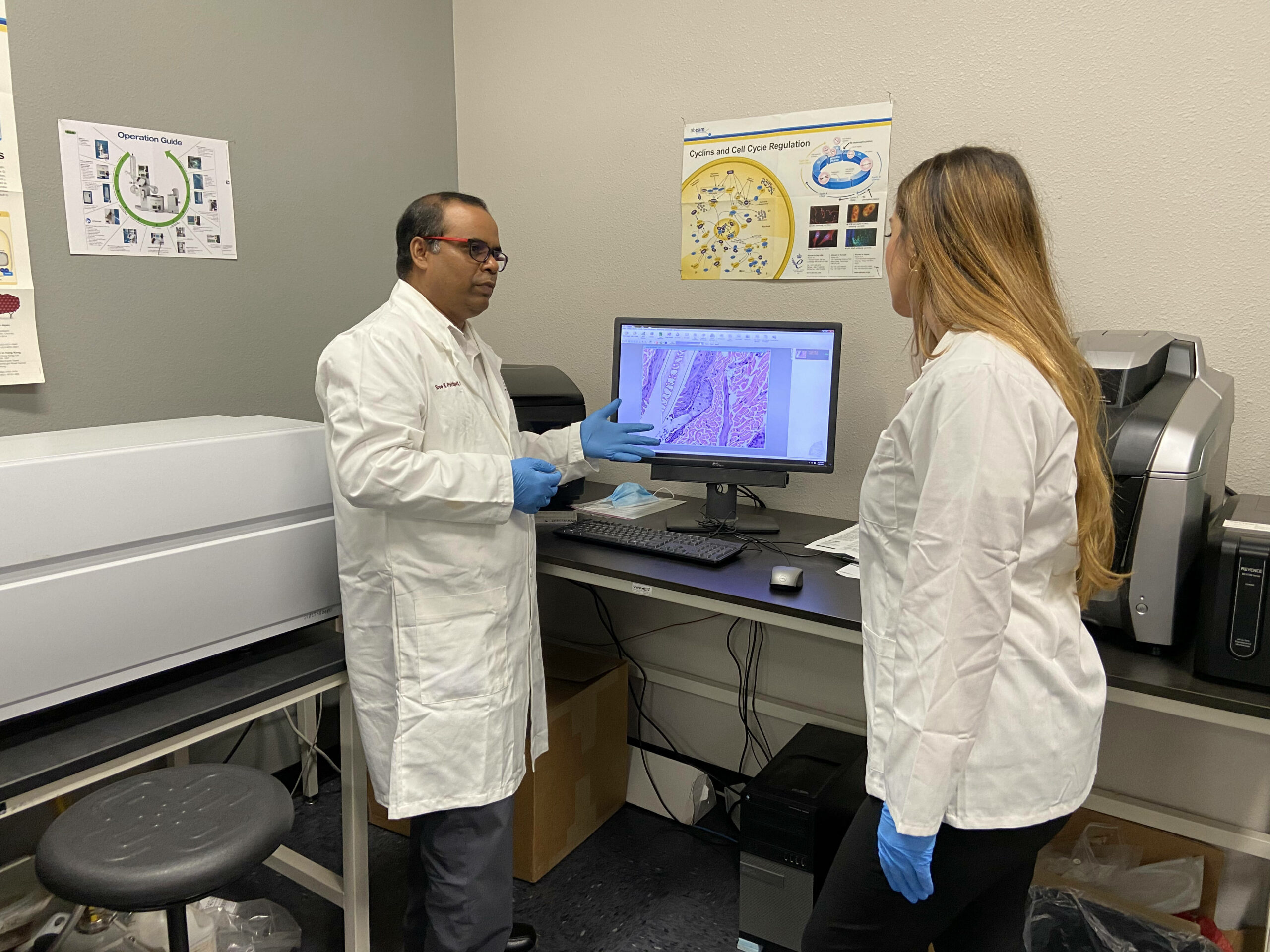
MSBS Program
Curriculum
Learn more about our innovative curriculum.

About the CHSU Master of Science in Biomedical Sciences (MSBS) program
The Master of Science in Biomedical Sciences (MSBS) program at the CHSU College of Biosciences and Health Professions offers two tracks to help students strengthen their academic credentials and critical thinking skills before pursuing a healthcare profession career.
1-year, Non-thesis Track (30 Credits)
The 1-year MSBS curriculum provides clinically relevant, biomedical science courses at the graduate level. This non-thesis track can help boost students’ academic credentials and increase the competitiveness of their application to medical or other healthcare professional schools.
2-year, Thesis Track (50 Credits)
Year 1 is 30 Credits
Year 2 is 20 Credits
After completing the 1-year MSBS track (30 credits), the second-year thesis track includes 20 credits of training and experience in bench research. The thesis track can help students be competitive in education, research, pharmaceutical and biotech industries, and government careers.
MSBS Program Learning Outcomes (plos)
Upon completion of the MSBS program, students are expected to:
- Develop the knowledge, skills, and aptitudes of the core areas of biomedical sciences necessary for entry into a health-professions program.
- Apply fundamental concepts of biomedical sciences to develop an understanding of the clinical principles of health and disease.
- Demonstrate the ability to review scientific literature, design a research project, interpret biomedical research, and value the process of scientific discovery.
- Develop ethical reasoning, critical thinking, and problem-solving skills relevant to health related disciplines.
- Demonstrate effective communication and presentation skills.
- Demonstrate an ability to conduct independent research and effectively communicate scientific information in written and oral formats (Applicable only for the thesis track).
1-year, non-thesis track (30 credits) – Academic Year 2025-2026
| Fall Courses | Credits |
|---|---|
| Anatomy I (Theory & Lab) | 3 credits |
| Physiology and Pathophysiology I | 2 credits |
| Genetics, Molecular and Cell Biology | 3 credits |
| Biochemistry | 3 credits |
| Biostatistics and Principles of Epidemiology | 3 credits |
| Critical Thinking and Research Methods I | 1 credit |
| Integrated Applications and Skills I | 1 credit |
| MCAT / DAT Prep (optional) | 2 credits (optional) |
| TOTAL FALL COURSE CREDITS | 16 credits (not including 2 optional credits) |
| Spring Courses | Credits |
|---|---|
| Anatomy II (Theory & Lab) | 3 credits |
| Physiology and Pathophysiology II | 2 credits |
| Pharmacology and Toxicology | 3 credits |
| Immunology and Microbiology | 3 credits |
| Ethics in Healthcare | 1 credit |
| Critical Thinking and Research Methods II | 1 credit |
| Integrated Applications and Skills II | 1 credit |
| TOTAL SPRING COURSE CREDITS | 14 credits |
| TOTAL MSBS NON-THESIS TRACK CREDITS | 30 credits (not including 2 optional credits) |
2nd year curriculum for the msbs thesis track
After completing 30 credits in the year 1, year 2 is 20 credits (50 total credits for 2-year thesis track)
| Semester | Courses | Credits |
|---|---|---|
| Summer | Introduction to Research | 4 credits |
| Fall | Mentored Research and Thesis | 8 credits |
| Spring | Mentored Research and Thesis | 8 credits |
| TOTAL MSBS THESIS TRACK CREDITS | 20 credits |